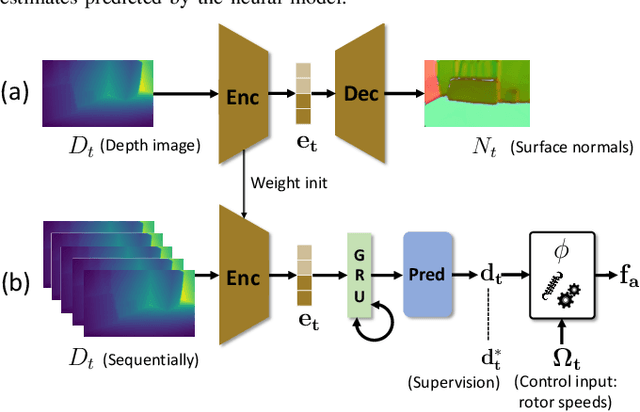Learning to estimate UAV created turbulence from scene structure observed by onboard cameras
Paper and Code
Mar 28, 2022



Controlling UAV flights precisely requires a realistic dynamic model and accurate state estimates from onboard sensors like UAV, GPS and visual observations. Obtaining a precise dynamic model is extremely difficult, as important aerodynamic effects are hard to model, in particular ground effect and other turbulences. While machine learning has been used in the past to estimate UAV created turbulence, this was restricted to flat grounds or diffuse in-flight air turbulences, both without taking into account obstacles. In this work we address the complex problem of estimating in-flight turbulences caused by obstacles, in particular the complex structures in cluttered environments. We learn a mapping from control input and images captured by onboard cameras to turbulence. In a large-scale setting, we train a model over a large number of different simulated photo-realistic environments loaded into the Habitat.AI simulator augmented with a dynamic UAV model and an analytic ground effect model. We transfer the model from simulation to a real environment and evaluate on real UAV flights from the EuRoC-MAV dataset, showing that the model is capable of good sim2real generalization performance. The dataset will be made publicly available upon acceptance.
 Add to Chrome
Add to Chrome Add to Firefox
Add to Firefox Add to Edge
Add to Edge